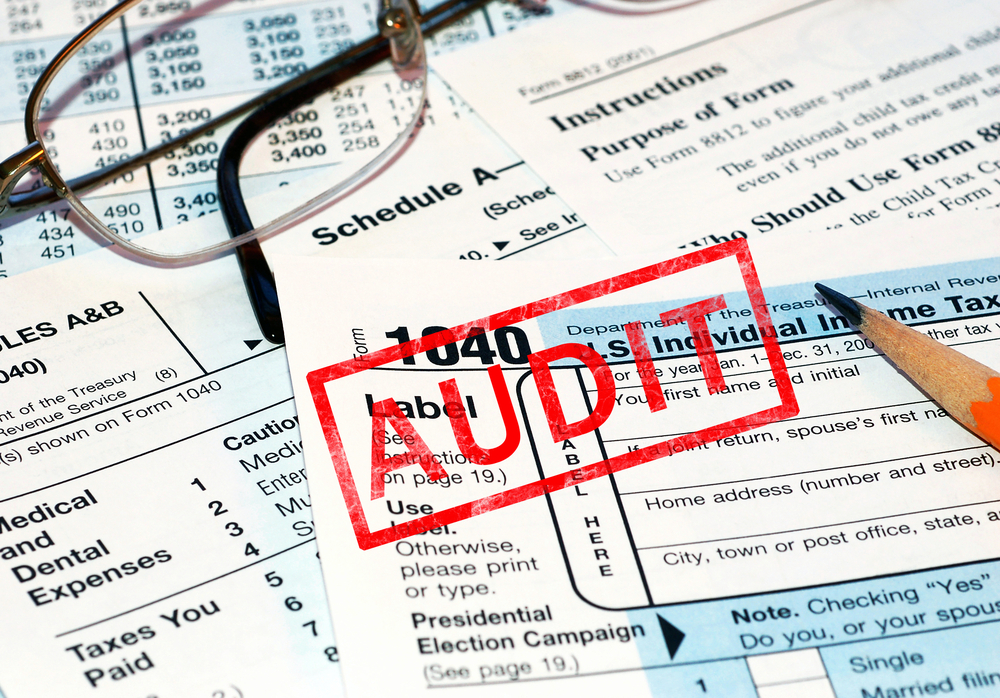What to Do If an IRS Audit Reveals You Owe More Taxes than You Can Afford
- Mar 01, 2023
 Nobody likes to receive that notice saying they’ve been selected for an IRS audit. Even if things work out perfectly, it’s a stressful experience and can take up even more of your time than filing your taxes did in the first place. But sometimes, an IRS audit will review that you owe even more taxes than you’ve already paid—and perhaps even more than you can afford. What do you do when you’ve already paid your taxes, only to discover that you owe more and can’t pay the additional balance? Keep reading to learn more about handling IRS audits and their results.
Nobody likes to receive that notice saying they’ve been selected for an IRS audit. Even if things work out perfectly, it’s a stressful experience and can take up even more of your time than filing your taxes did in the first place. But sometimes, an IRS audit will review that you owe even more taxes than you’ve already paid—and perhaps even more than you can afford. What do you do when you’ve already paid your taxes, only to discover that you owe more and can’t pay the additional balance? Keep reading to learn more about handling IRS audits and their results.
What Happens During an IRS Audit?
First, if you’ve been selected for an IRS audit, it’s important to understand what happens during these audits. You should know that the vast majority of IRS audits are something known as “correspondence audits.” These are much simpler than the other type of audit that the IRS performs, which we’ll get to in a moment, but it’s still important that you are meticulous about providing the correct information for the process. Here’s what to expect from a correspondence audit:
- You’ll receive a notice from the IRS requesting additional information or verifying documentation supporting an item on your return. For example, if you claimed a mileage deduction for a business vehicle, they may request your driving logs to show that the amount you claimed for business mileage is accurate.
- You will need to send in the requested documentation to support the deduction or other item on your tax return.
- The IRS will review the additional documents and make a final decision regarding what you owe. If the documents you provided support what’s written on your return, what you owe won’t change. If you cannot provide the documentation needed, however, or if your documentation shows a different amount than what you claimed, unsupported deduction amounts on your return will be removed, and you will owe more in taxes.
The second type of IRS audit is an in-person audit, and these are significantly more complex and involved. As the moniker implies, this type of audit involves an IRS agent coming to you in-person to perform an audit of your tax documents; this is most commonly seen with business tax returns, rather than personal tax returns. The IRS representative will be primarily looking at three types of documents:
- Past tax returns
- Income documentation
- Past tax penalties
You’ll want to ensure that you have all of these types of documents readily available when the IRS agent arrives. Additionally, due to the complexity of an in-person audit, it’s strongly advised that you have a CPA representing you during the audit. A CPA can also help with correspondence audits by providing the requested documentation to the IRS on your behalf.
In both types of audits, it’s important to note that the burden of proof lies with you; you must be able to support all of the income, expenses, and deductions reported on your tax return. If you can’t, you’ll likely find yourself owing more.
What to Do If You Owe More
Now that we’ve discussed what you can expect during the audit process, you’re probably still wondering what to do if the IRS decides you owe more than what you’ve already paid—and more importantly, what to do if you can’t afford it. If you’ve been making regular payments to the IRS and have already paid the previous amount you owed, there’s a good chance that the IRS will be willing to work with you in managing your newly acquired tax debt.
However, this will depend largely upon the reason for the audit and the increased amount that you owe. If the IRS has reason to believe that you deliberately misrepresented your financials on your initial tax return, you will not only be unlikely to receive a repayment plan from the IRS, but could find yourself facing criminal charges for tax fraud.
If the initial mistake on your tax return was just that—a simple mistake—then you can likely receive a tax settlement program through the IRS. There are several different types of repayment plans, including short-term and long-term repayment plans that will allow you to spread out payments on your tax debt over an extended period of time. Often, this is enough to help those who have gone through an IRS audit to gather the necessary funds to pay the additional amount that they owe.
If you need help settling your tax debt with the IRS, contact the IRS Advocates today and start working with an experienced tax professional to get your tax debt under control.
STOP THE IRS!
Settle for less & Protect your assets
Never Call the IRS without Speaking with our Pros First!